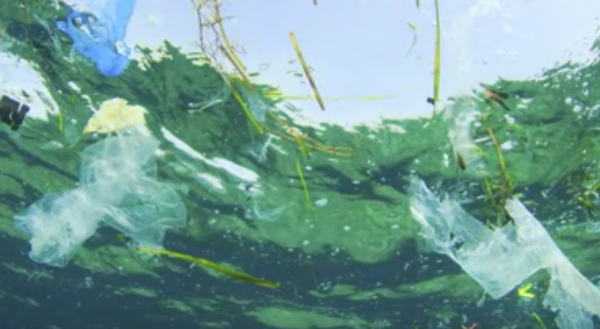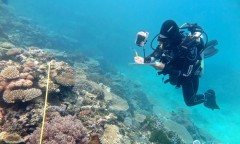By Vishal Goel, | January 20, 2017

The ocean could contain more plastic waste than fishes by 2050, according to a new study. (YouTube)
According to a joint report by the World Economic Forum and the Ellen MacArthur Foundation, there could be more plastic than fish (by weight) in the ocean by the year 2050, if no action is taken immediately.
To address the issue, over 40 industry leaders have suggested a plan to launch an initiative aimed at increasing the recycling of plastic packaging from the current 14 percent to 70 percent, by using re-usable alternatives and improving packaging design. The report said:
Like Us on Facebook
- A total of 20 percent of the plastic packaging could be profitably reused, for instance, by replacing single-use plastic bags with re-usable alternatives or designing innovative packaging models based on product refill.
- A further 50 percent of the plastic packaging could be profitably recycled, provided improvements are made in packaging design and after-use management systems. This move could bring in an additional $90 to $140 per tonne of mixed plastics.
- The remaining 30 percent of plastic packaging can never be recycled and the equivalent of ten billion garbage bags per year will be destined to landfill or incineration.
Dame Ellen MacArthur, the founder of the Ellen MacArthur Foundation, said that the New Plastics Economy (NPE) initiative has attracted a lot of support with the industry seeing a strong initial momentum and alignment on the direction to take. Also, the New Plastics Economy: Catalysing action provides a clear plan for redesigning the global plastics system, "paving the way for concerted action," MacArthur said.
Dominic Waughray, head of the public-private partnership and member of the executive committee of the World Economic Forum, is positive that this plan is capable of driving systematic change.
Additionally, Malati Gadgil, Treasurer of the Kagad Kach Patra Kashtakari Panchayat (KKPKP), said that the KKPKP, through first-hand experience, knows how recyclable plastics create income for waste pickers in India.
-
Use of Coronavirus Pandemic Drones Raises Privacy Concerns: Drones Spread Fear, Local Officials Say

-
Coronavirus Hampers The Delivery Of Lockheed Martin F-35 Stealth Fighters For 2020

-
Instagram Speeds Up Plans to Add Account Memorialization Feature Due to COVID-19 Deaths

-
NASA: Perseverance Plans to Bring 'Mars Rock' to Earth in 2031

-
600 Dead And 3,000 In The Hospital as Iranians Believed Drinking High-Concentrations of Alcohol Can Cure The Coronavirus

-
600 Dead And 3,000 In The Hospital as Iranians Believed Drinking High-Concentrations of Alcohol Can Cure The Coronavirus

-
COVID-19: Doctors, Nurses Use Virtual Reality to Learn New Skills in Treating Coronavirus Patients











